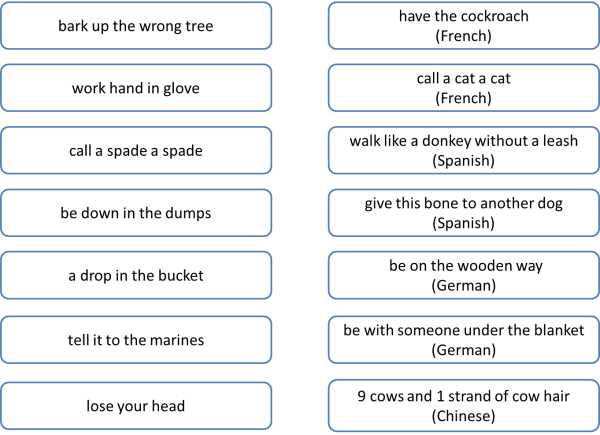Words and meaning
 |
| what does it mean? |
 |
What is a 'word'? |
This may seem a very simple question but it is difficult
to define exactly what a word is.
Consider, for example, these:
- The European Union
- Mars
- washing machine
- happiness
- undoability
- colourlessness
- go on
- look forward to
Not all of these will be found in a standard dictionary, of course,
but that doesn't stop them from carrying a single significance and
functioning as words in English. They all represent single
ideas or concepts but some contain two or three words.
If we add, for example
- hook, line and sinker
- a needle in a haystack
- the black sheep of the family
we then have single concepts represented by 4, 5 or 6 words.
It is for this reason, among others, that when we analyse words we
refer to lexemes or lexical items
which represent and are used as single concepts, no matter how many
words they contain.
For convenience, we refer to 'words' but we need always to bear in
mind that it is really lexemes that we are talking about.
 |
Three types of meaning |
When we try to answer the question, "What does 'mean' mean?", we discover that we need to think about three types of meaning.
- Sense
This refers to a word's general significance.
For example, we can probably agree on the sense of the word coin. The word, as a noun, means a small metal unit of currency. This is the word's sense or its denotation. - Reference
This refers to the actual thing I mean (or the action etc. but for simplicity's sake, we'll focus on nouns). In other words, it is this instance of the word's use.
For example, if I say
The coin on the book
I know (and so do you) that I am referring not to coins in a general sense but to a particular one I have in mind. - Connotation
This refers to a second level of meaning above denotation and is often personally or culturally determined. For example, the lexemes earn and coin it in and the words quack and doctor carry the same senses (making money and a medical practitioner, respectively) but mean very different things. The same can be said of a whole range of lexemes such as youth-teen, child-brat, newspaper-rag, speech-sermon, dirt-filth, police officer-copper-cop and so on.
As you discovered when looking at word class, all three of these meanings can only be ascribed to lexical words. Grammatical or function words have no intrinsic meaning.
 |
Fixed expressions |
We saw some examples of these above (a needle in a haystack
etc.).
The issue here is called idiomaticity and the
example is of an idiom.
Idioms are frequently impossible to understand by knowing all the
words that make them up, a phenomenon known as non-compositionality.
Here are some examples of idioms in English (on the left) and some
equivalents in other languages. Can you make them match?
Click on the image when you have an answer.

There are two important issues to describe concerning idioms in any language:
- Transparency:
It is sometimes possible to guess at the meaning, of course, and there is a range of idiomatic language from the completely obvious to the fully impenetrable.
For example:- she has missed the boat (meaning lost an opportunity) is just about comprehensible given some context
- they threw in the towel (meaning gave up or surrendered) is possible to understand if one has some knowledge of boxing conventions
- he kicked the bucket (meaning died) is wholly incomprehensible and must be learned and used as a complete unit
- Fixedness:
Some idioms cannot be altered at all (or only very slightly in terms of changing the tense or pronouns), but others can have multiple variants.
For example:- through thick and thin cannot be altered to through fat and thin or through thick and narrow and retain its meaning and is at the fixed end of the spectrum
- we're having a hoot can be expressed alternatively as we're having a whale of a time, and hit the sack can be replaced with hit the hay and so on. These are idioms with limited flexibility.
- Other expressions, which are really just strong
associations between words or collocations, are very much
more flexible (and don't count as idioms at all in some
analyses).
For example, we can make the beds, haste, friends and so on and on but not *make the homework, or *make damage (for which the verb do is preferred).
Similarly, we pay attention, a compliment and our respects but take an interest, offence, place etc. and give explanations, thanks and promises etc.
 |
Learn more about: |
 |
Take a test |
To make sure you have understood so far, try
a very short test of your
knowledge of word meaning.
Use the 'Back' button to return when you have done that.
If you got that all right, it is safe to move on.
The next area to learn about is the Relationships between words. Click here to go to that section.
